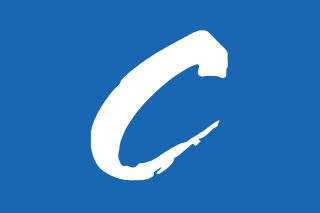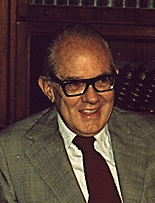
Parliamentary elections were held in Russia on 12 December 1993. They included the last elections to the Federation Council of Russia.

Legislative elections were held in the German Democratic Republic on 20 October 1963. They were to originally be held in November 1962 but were postponed. 434 deputies to the Volkskammer were elected, with all of them being candidates of the single-list National Front, dominated by the Communist Socialist Unity Party of Germany.

Parliamentary elections were held in Bulgaria on 18 December 1949. They were the first legislative elections held under undisguised Communist rule. With all meaningful opposition having been destroyed, voters were presented with a single list from the Fatherland Front, dominated by the Bulgarian Communist Party. According to official figures, almost 4.7 million people turned out to vote and only 980 of them voted against the list, while another 109,963 ballots were invalid or blank. Voter turnout was reportedly 98.9 percent.

Parliamentary elections were held in Hungary on 25 and 26 January 1920. However, they were only held in 164 districts. After the Treaty of Trianon was signed, the 44 districts previously occupied by Romania voted between 13 June and 5 July, whilst the 11 districts occupied by Serbia did not vote until 30 and 31 October 1921. The election was held with compulsory voting. In protest at this and other changes to the franchise that left 60% of the voting age population unable to vote, the Hungarian Social Democratic Party boycotted the elections, and called for its supporters to cast invalid votes, resulting in an unusually high number of blank or invalid votes - 11.8% in the January elections and over 20% in Budapest and other major cities.

Parliamentary elections were held in Romania on 2 March 1969. The Front of Socialist Unity, which had been formed a year earlier to replace the People's Democratic Front, was the only organization that contested the election; no prospective candidate could run for office without the Front's approval. Like the People's Democratic Front, the Front of Socialist Unity was dominated by the Romanian Communist Party. The Front won all 465 seats in the Great National Assembly.

Parliamentary elections were held in Romania on 9 March 1975. The Front of Socialist Unity, dominated by the Romanian Communist Party and including other mass organisations, was the only organisation that contested the election. No prospective candidate could run for office without the Front's approval. The Front won all 349 seats in the Great National Assembly.

Parliamentary elections were held in Romania on 9 March 1980. The Front of Socialist Unity and Democracy, dominated by the Romanian Communist Party and including other mass organisations, was the only organisation that contested the election. No prospective candidate could run for office without the Front's approval. The Front won all 369 seats in the Great National Assembly.

Parliamentary elections were held in Romania on 17 March 1985. The Front of Socialist Unity, dominated by the Romanian Communist Party and including other mass organisations, was the only organisation that contested the election. No prospective candidate could run for office without the Front's approval. The Front won all 369 seats in the Great National Assembly. These would be the last single-party elections held in Romania; the Communists would be overthrown four years later.

Presidential elections were held in Colombia on 4 May 1958. They were the first presidential elections since 1949, following a military coup against President Laureano Gómez in 1953. Following the coup, the two main parties came to an agreement on holding office for alternating periods of four years. The agreement, known as the National Front, was approved in a 1957 referendum.

Presidential elections were held in Colombia on 1 May 1966. Under the National Front agreement, it was the turn of the Liberal Party to govern, and so all candidates were members of the party. The result was a victory for Carlos Lleras Restrepo, who received 71.8% of the vote.

Parliamentary elections were held in Colombia on 16 March 1958 to elect the Senate and Chamber of Representatives. They were the first elections held under the National Front agreement, which only allowed the Conservative Party and the Liberal Party to contest the elections, and allocated 50% of the seats in both houses to each party. As a result, the main contest at the elections was between factions within each party.

Parliamentary elections were held in Colombia on 20 March 1960 to elect the Chamber of Representatives. Under the National Front agreement, only the Conservative Party and the Liberal Party were able to contest the elections, with 50% of the seats in both houses allocated to each party. As a result, the main contest at the elections was between factions within each party.

Parliamentary elections were held in Colombia on 18 March 1962 to elect the Senate and Chamber of Representatives. Under the National Front agreement,only the Conservative Party and the Liberal Party were allowed to contest the elections, with each party allocated 50% of the seats in both houses. As a result, the main contest at the elections was between factions within each party.

Parliamentary elections were held in Colombia on 15 March 1964 to elect the Chamber of Representatives. Under the National Front agreement, only the Conservative Party and the Liberal Party were able to contest the elections, with 50% of the seats in both houses allocated to each party. As a result, the main contest at the elections was between factions within each party.

Parliamentary elections were held in Colombia on 20 March 1966 to elect the Senate and Chamber of Representatives. Under the National Front agreement,only the Conservative Party and the Liberal Party were allowed to contest the elections, with each party allocated 50% of the seats in both houses. As a result, the main contest at the elections was between factions within each party.

Parliamentary elections were held in Colombia on 17 March 1968 to elect the Chamber of Representatives, the last occasion on which mid-term elections were held for the Chamber. Under the National Front agreement, only the Conservative Party and the Liberal Party were able to contest the elections, with 50% of the seats in both houses allocated to each party. As a result, the main contest at the elections was between factions within each party.

General elections were held in Colombia on 19 April 1970 to elect the President, the Senate and the Chamber of Representatives. It was the first time all three institutions had been elected on the same day, and was also the last election under the National Front agreement, which had restricted electoral participation to the Conservative Party and the Liberal Party, with each party allocated 50% of the seats in both houses, whilst the Presidency alternated between the two parties. As a result, the main contest in parliamentary elections was between factions within each party, whilst only Conservative candidates ran for the presidency. The result was a victory for Misael Pastrana Borrero, who received 40.7% of the vote. However, supporters of Gustavo Rojas Pinilla claimed that the election had been rigged in favour of Pastrana. Rojas had also been supported by the Christian Social Democratic Party. The 19th of April Movement guerrillas traced their origins to this alleged fraud.

General elections were held in Colombia on 21 April 1974 to elect the President, the Senate and the Chamber of Representatives. They were the first elections after the end of the National Front agreement, which had restricted electoral participation to the Conservative Party and the Liberal Party, with each party allocated 50% of the seats in both houses, whilst the Presidency alternated between the two parties.

Federal elections were held in Switzerland on 27 October 1872. The Radical Left remained the largest group in the National Council.












